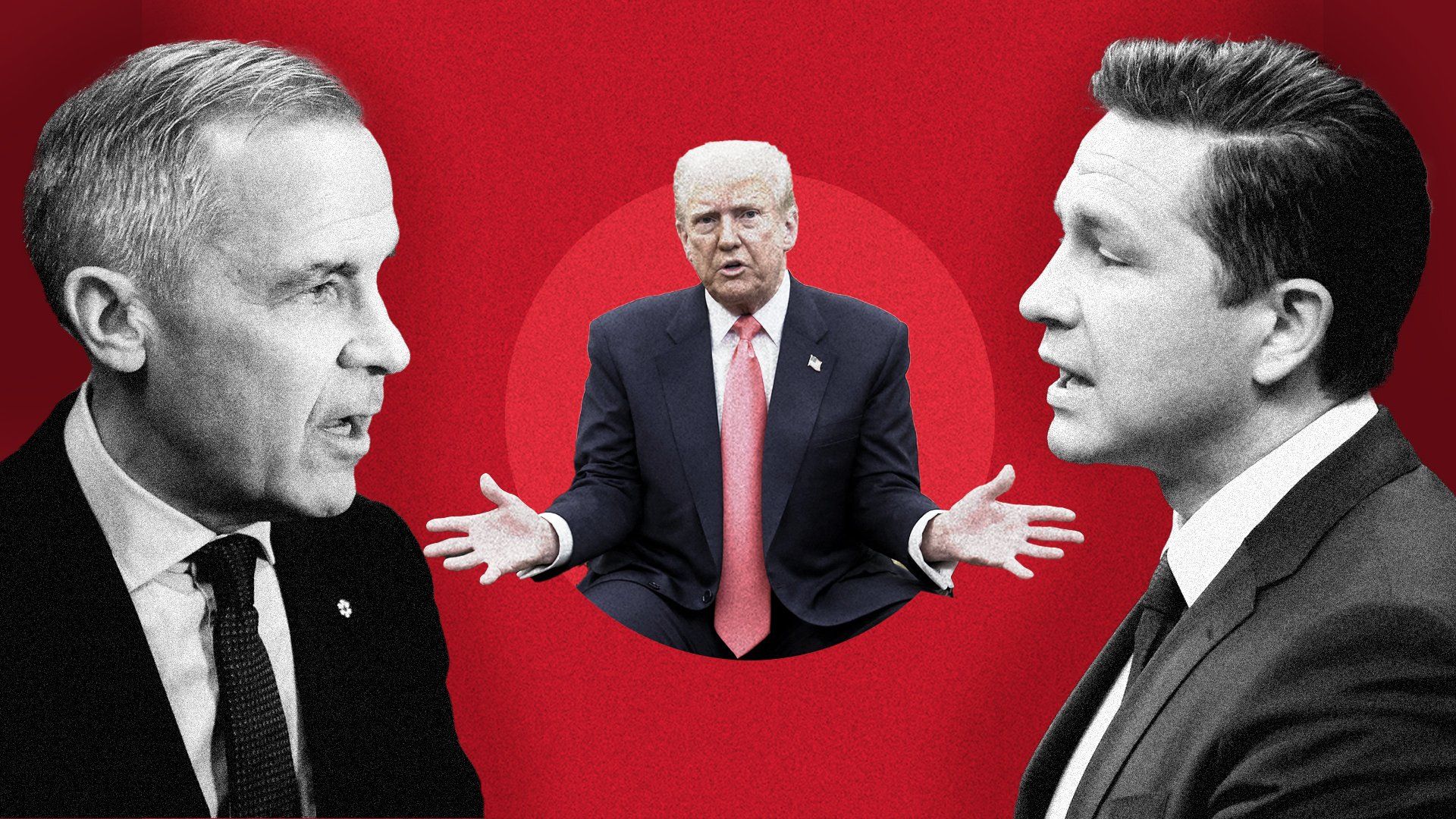Mark Carney was sworn in Friday as the prime minister of Canada.
AsCarney takes the helm from Justin Trudeau, the country is witnessing a stunning rebound for the Liberals. In January, the governing Liberal Party trailed the opposition Conservatives by 25 points. Now, the gap has closed to roughly 6 points, and some recent polls even have the Liberals ahead. And Carney’s previous, purported liabilities — being a staid, low-key, globalist technocrat who’s never been elected — may now be seen as strengths as he prepares to call a snap election in the coming days.
What changed between January and today? In short: Donald Trump andTrudeau. Once Trudeau signaled his intention to go, the polls started moving in the Liberals’ favor. Then, Trump threatened Canada with annexation, calling for it to become the “cherished” 51st state and ushered in a trade war with heavy tariffs. Canadians rallied around the flag — and the governing party. Now it seems those same Canadians may be looking for an unflashy, steady hand on the tiller — a leader who can calmly explain matters and strike a stable, reliable posture.
Carney flips the script
Twice serving as a central banker — head of the Bank of Canada and, later, the Bank of England — Carney held earlier positions as deputy minister and an investment banker. His time at the central banks coincided with two major crises: the global financial crisis and Brexit. He’s been criticized by many on the right and left — including me — as a boring technocrat who couldn’t rise to meet today’s populist anger. The Conservatives and their leader, Pierre Poilievre, attacked him as a globalist — a banker with multiple passports, a Davos man through and through. A European, even.
Now, as Canada stares down threats from Trump and begins to look at trade and defense diversification, Carney’s CV and aesthetic may be valuable assets for enough voters to save the Liberals — or, at least, to bring them back from the brink of a previously expected wipeout.
These circumstances give Carney the chance to present himself as the change candidate with enough insiders onside to get the job done. He’s not Trudeau, and he’s never been elected — yet he has the steady hand of continuity as a Liberal surrounded by members of Parliament who’ve been around the block. He’s calm, experienced in negotiation and economic management, and he can explain the crisis at hand and what needs to be done. Even conservative Ontario Premier Doug Ford says Carney “understands finances like no other person.”
Still, Carney faces a big leadership test, and his party continues to trail in most polls. Graeme Thompson, a senior macro-geopolitics analyst at Eurasia Group, says Carney’s skills and temperament make him a kind of anti-Trump. But there may be a limit to how far that will take him in an election campaign, even if they serve him while governing.
What happens, asks Thompson, “when the technocratic economist skills and experience, and the kind of bland, boring, predictable, safe persona runs into the fact of a 40-day electoral sprint in front of the media, live crowds, and on debate stages with Pierre Poilievre?”
Carney versus Trump, Poilievre versus …Trudeau?
When Carney hits the debate stage, he’ll be running against Trump, and he’ll make the case that while he can’t manage the mercurial president — he says Trump can’t be controlled — he can effectively navigate the crises emanating from the White House.
In his victory speech in Ottawa last Sunday, Carney said as much, sending a message to Canadian voters — and Trump — and setting the tone and focus of his campaign for the federal election.
“Canada never, ever will be part of America in any way, shape, or form,” said Carney. “We didn’t ask for this fight, but Canadians are always ready when someone else drops the gloves.”
On Wednesday, Carney said he’ll only meet Trump if the president respects Canadian sovereignty, though he didn’t specify exactly what that would entail.
Poilievre and the Conservatives, meanwhile, have been left snakebitten by the quick turn of events. They say they’re not panicking at Carney’s rise, but they’re dropping in the polls, and they’ve lost the electoral focus — the carbon tax — they’ve worked on for over a year. Like the Conservatives, Carney says he will also scrap consumer carbon pricing. Poilievre has built his campaign around his character: combative, angry, unapologetically right-wing, and, above all, anti-Trudeau. He’s built his entire campaign around running against Trudeau.
Now, he’ll try to make the case that the new PM is Trudeau 2.0. Poilievre will question his opponent’s trustability, pointing to the fact that Carney has not disclosed his financial assets — even though he has now put those assets in a blind trust — and that Carney’s using Trump as a distraction.
Described as Trump-like or Trump-inspired in the past, Poilievre recently has been tougher on the president, attacking his tariffs, supporting counter-tariffs, and emphasizing that Canada will never become the 51st state. But it’s a fine line; he knows much of his base has been pro-Trump — and some still are. Poilievre can’t afford to alienate them, and the Liberals will be all too happy to try to tie the Canadian right to its US counterpart.
One way or another, the Canadian election will be about Trump, which could help the Liberals.
“If the election is about people wanting the opposite of whatever it is that Donald Trump is offering, then that works to the benefit of the Liberals,” Thompson says.
“In a way, you’re going to get a fight not between two relatively different policy visions, but two notions of what the ballot question is. A lot is going to be determined by the actual campaign, but the Liberals are definitely back in the game.”
